TEHRAN, Iran — Britain said Monday that it would join a U.S.-led naval security mission in the Strait of Hormuz, where Iran’s seizure of merchant vessels has raised tensions with the West. Earlier, Iran’s foreign minister lambasted recent U.S. financial sanctions against him, calling the move a “failure” for diplomacy.
Iranian Foreign Minister Mohammad Javad Zarif told reporters in Tehran that "imposing sanctions against a foreign minister means failure" for any efforts at negotiations, and means the side imposing the measures is "opposing talks."
RELATED
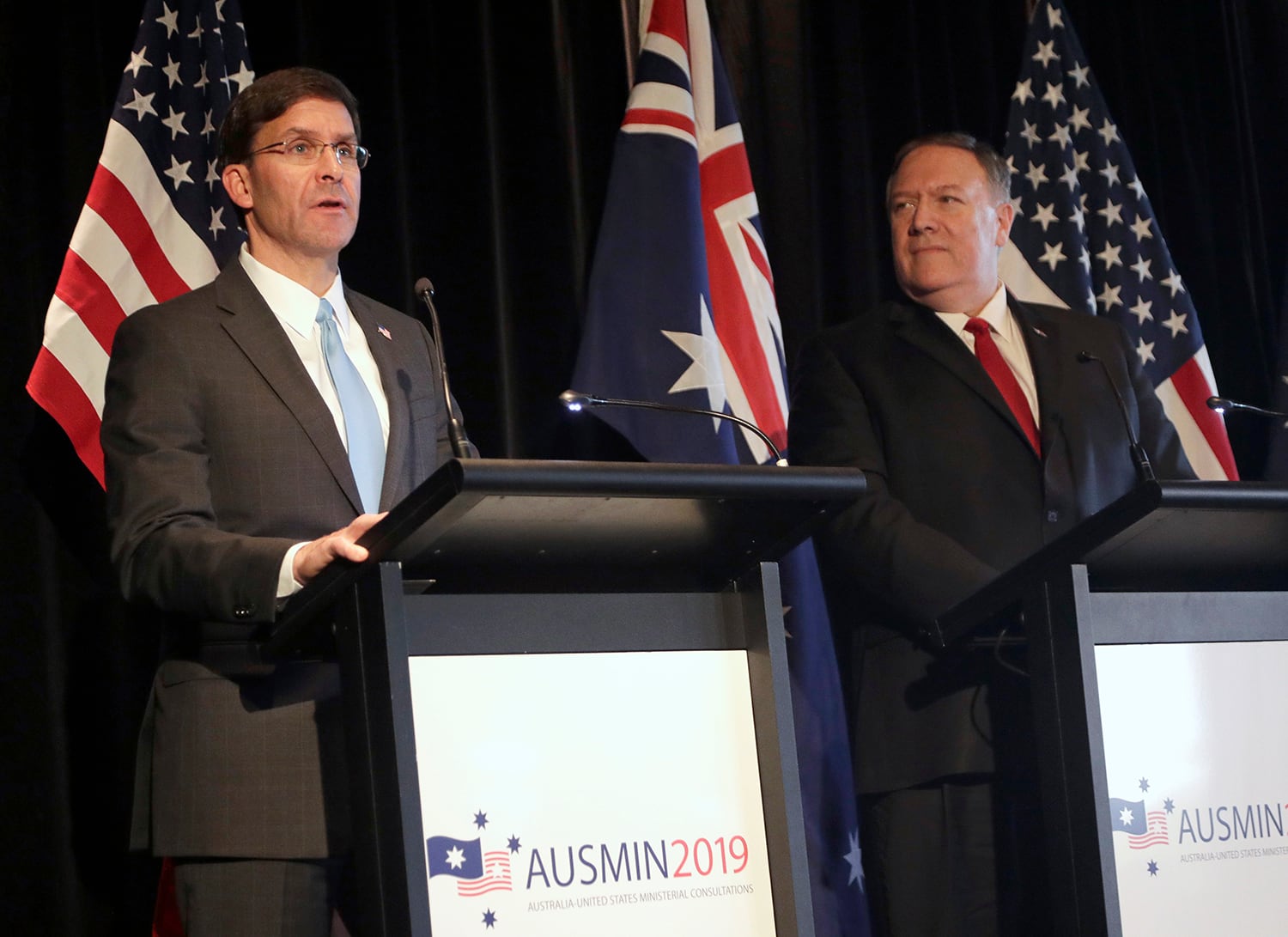
The U.S. administration last week announced sanctions on Zarif, a month after President Donald Trump had imposed similar sanctions on Iran's supreme leader, Ayatollah Ali Khamenei.
The moves are seen as part of Washington's escalating campaign in what Trump calls "maximum pressure" on the Islamic Republic.
The U.S. has increasingly deployed military reinforcements to the region amid unspecified threats from Iran in the wake of Trump’s withdrawal last year from the 2015 nuclear deal between Iran and world powers.
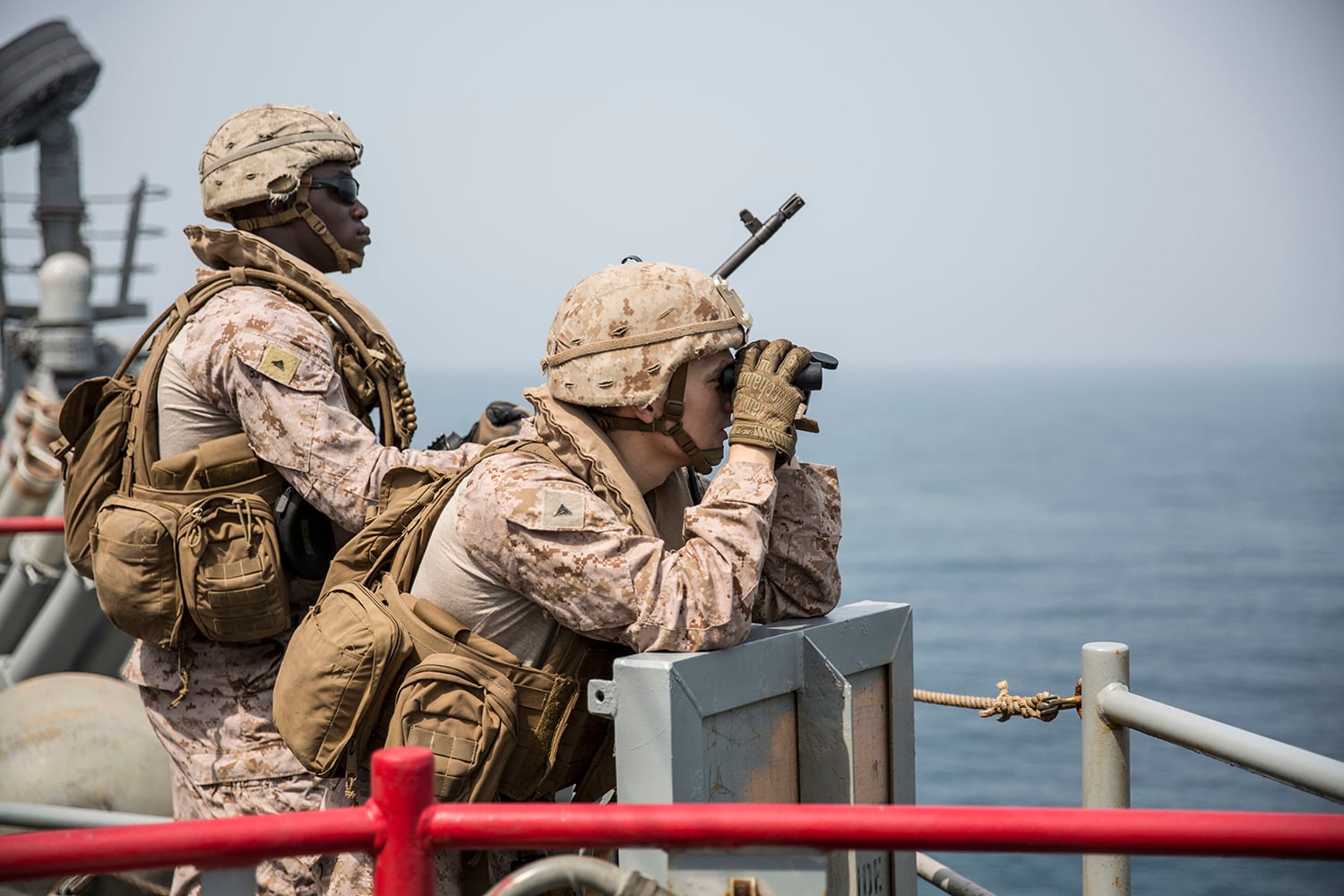
Britain's Ministry of Defense said it "will draw largely on assets already in the region." It said the Royal Navy will work alongside the U.S. Navy to escort vessels through the Strait of Hormuz, which sits at the mouth of the Persian Gulf, a shipping channel for one-fifth of all global crude exports.
Two Royal Navy warships are currently in the region, the frigate HMS Montrose and the destroyer HMS Duncan. The Montrose is due to leave for planned repairs later this month.
RELATED
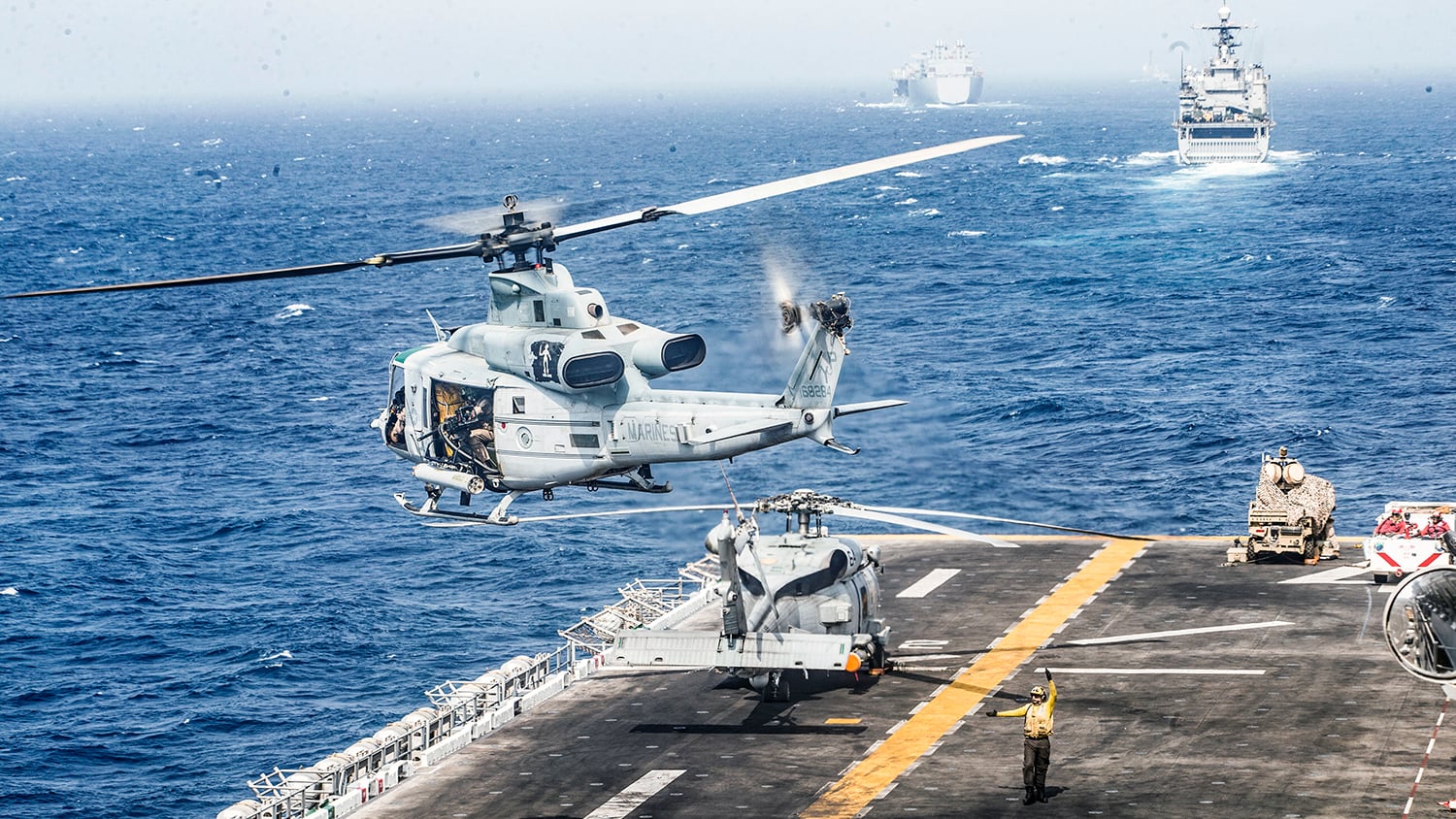
Britain has been giving U.K.-flagged vessels in the region a naval escort since the Iran’s Revolutionary Guards seized a British-flagged oil tanker last month. Some Iranian officials suggested the seizure of the Stena Impero was retaliation for the seizure of an Iranian oil tanker off the British overseas territory of Gibraltar.
European nations have been reluctant to take part in the U.S. naval mission, and Germany has said it will not be involved.
Last month, then-U.K. Foreign Secretary Jeremy Hunt announced that the U.K. would join with European allies to form a “maritime protection mission” in the strait.
Hunt has since lost his job, and that effort appears to have foundered. Britain's Ministry of Defense said the U.S. and the U.K. hoped other countries will join the new mission.
Prime Minister Boris Johnson's spokesman, James Slack, said Britain was still seeking an international coalition, though he did not say who would be in it.
Zarif had stressed Monday that Washington's policy of "talking about war as an option that remains on the table cannot stand."
Zarif's press conference came a day after Iran announced its forces had seized a foreign ship in the Persian Gulf suspected of carrying smuggled fuel, but provided no details on the vessel or the nationality of the crew. It was the Revolutionary Guard's third seizure of a vessel in recent weeks and the latest show of strength by the paramilitary force amid the spike in tensions.
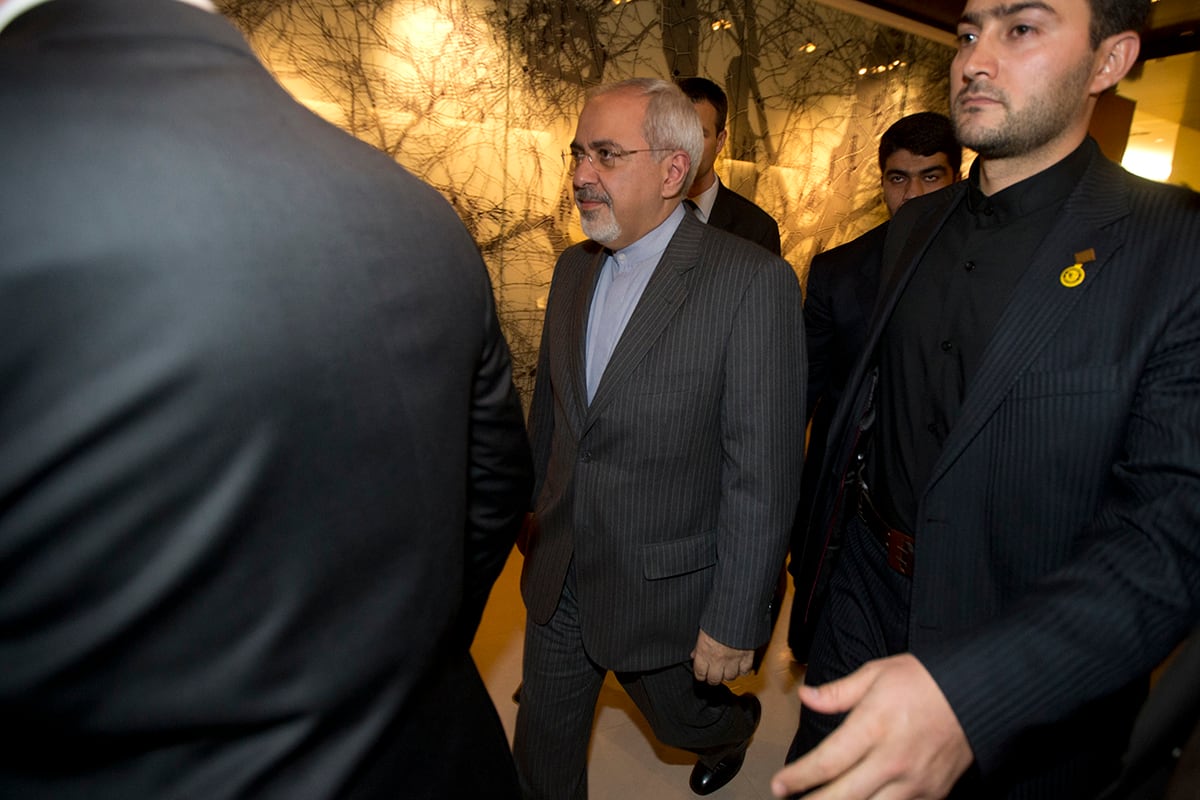
Six oil tankers have also been targeted in the Gulf of Oman in unclaimed acts of sabotage that the U.S. blames on Iran. Iran has denied any involvement in those attacks.
In June, Iran shot down an American surveillance drone in the Strait of Hormuz. Trump came close to retaliating, but called off an airstrike at the last moment.
Maritime security in the region was further jolted in mid-July, when the Revolutionary Guard's naval forces confirmed they had seized a United Arab Emirates-based oil tanker, the Panamanian-flagged MT Riah, for allegedly smuggling fuel from Iranian smugglers to foreign customers.
Britain and other European nations have distanced themselves from the American "maximum pressure" strategy. Unlike the U.S., European countries still adhere to the international nuclear deal.
RELATED
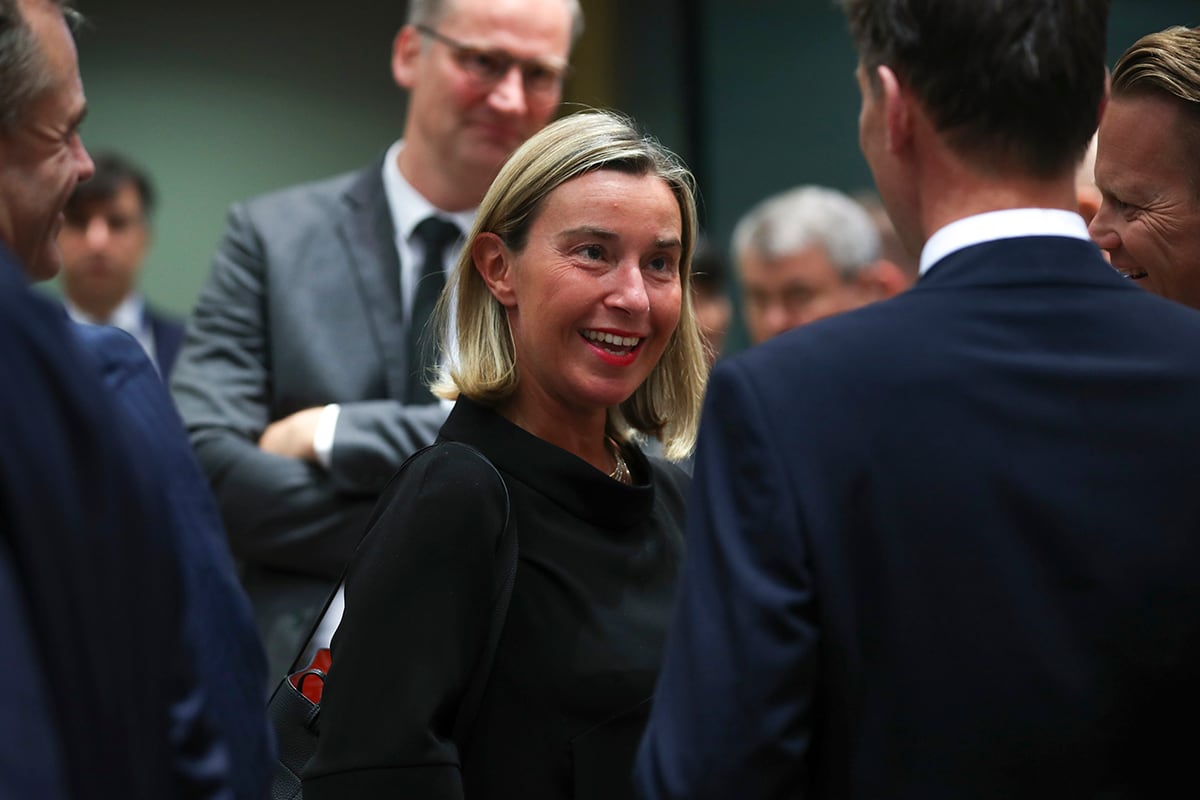
Iran recently began surpassing uranium enrichment limits set in the 2015 deal, but says these moves can be reversed if given enough economic incentives to offset U.S. sanctions.
Referring to the seizure of the British tanker, Zarif said Monday that it was not a reciprocal action for Gibraltar. He also told reporters he had received an invitation from Washington for a meeting during his New York trip in July, along with a warning about the sanctions.
U.S. officials have not confirmed either of Zarif's claims — neither the one about him being warned about the sanctions nor the one about the alleged invitation for talks.
Associated Press writer Jill Lawless in London contributed to this report.




